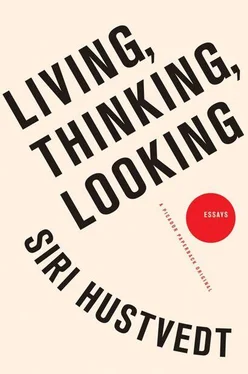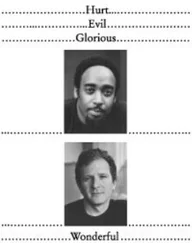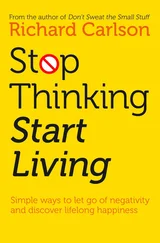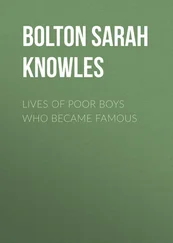My Mother, Phineas, Morality, and Feeling
1. Antonio Damasio, Descartes’ Error: Emotion, Reason and the Human Brain (New York: HarperCollins, 1994), 44.
2. A. R. Luria, Higher Cortical Functions in Man (New York: Basic Books, 1962), 256.
My Strange Head: Notes on Migraine
1. Francis Crick, The Astonishing Hypothesis: The Scientific Search for the Soul (New York: Simon & Schuster, 1994), 3.
2. A. R. Luria, The Man with a Shattered World: The History of a Brain Wound , trans. L. Solotaroff (Cambridge, MA: Harvard University Press, 1972), 42.
3. “Varieties of Religious Experience,” in William James: Writings 1902–1910 (New York: Library of America, 1987), 21.
4. Mark Solms, “Dreaming and REM Sleep Are Controlled by Different Brain Mechanisms,” in Sleep and Dreaming: Scientific Advances and Reconsiderations , ed. Edward F. Pace-Schott, Mark Solms, Mark Blagrove, and Stevan Harnad (Cambridge: Cambridge University Press, 2003), 54.
5. Jacques Lusseyran, And There Was Light (Boston: Little, Brown, 1965).
Playing, Wild Thoughts, and a Novel’s Underground
1. Wilfred Bion, Taming Wild Thoughts (London: Karnac Books, 1997), 27.
Sleeping/Not Sleeping
1. Geoffrey Chaucer, The Book of the Duchess, line 34.
2. Vladimir Nabokov, Speak Memory: An Autobiography Revisited (New York: Pyramid Books, 1967), 24–25.
3. Jorge Luis Borges, “Insomnia,” in Poems of the Night , ed. Efrain Kristal, trans. Christopher Maurer (New York: Penguin, 2010), 37.
4. Chaucer, The Book of the Duchess , lines 28–29.
5. Aristotle, On the Generation of Animals , Loeb Classical Library 366, trans. A. L. Peck (Cambridge, MA: Harvard University Press, 1963), 1.1.778b28–33.
6. The Complete Works of Aristotle: The Revised Oxford Translation , vol. 1, On Sleep, trans. J. I. Beare (Princeton, NJ: Princeton University Press, 1984), p. 722, 1.1.451b7–8.
7. “The Meditations,” in Essential Works of Descartes, trans. Lowell Bair (New York: Bantam Books, 1961), 60.
8. Maurice Merleau-Ponty, The Phenomenology of Perception, trans. Colin Smith (London: Routledge and Kegan Paul, 1962), 164.
9. Standard Edition of the Complete Psychological Works of Sigmund Freud , ed. and trans. James Strachey, vol. 14 (1917), Metapsychological Supplement to the Theory of Dreams (London: The Hogarth Press, 1957), 222.
10. Jaak Panksepp, Affective Neuroscience (Oxford: Oxford University Press, 1998), 266.
11. D. W. Winnicott, “The Deprived Child and How He Can Be Compensated for the Loss of Family Life,” in Deprivation and Delinquency (London: Tavistock, 1984), 186.
My Father/Myself
1. Jessica Benjamin, The Bonds of Love: Psychoanalysis, Feminism, and the Problem of Domination (New York: Pantheon Books, 1988), 102.
2. Charles Dickens, Little Dorrit (Oxford: Oxford University Press, 1953), 540.
3. George Oppen, Collected Poems (New York: New Directions, 1975), 109.
4. Henry James: Novels 1881–1886 (New York: Library of America, 1985), 109.
5. D. W. Winnicott, The Child, the Family, and the Outside World (London: Penguin, 1991), 117.
6. Paul Auster, The Invention of Solitude (New York: Penguin, 1982), 19.
7. Ibid., 81–82.
8. Mary Douglas, Purity and Danger: An Analysis of the Concepts of Pollution and Taboo (London: Routledge and Kegan Paul, 1966), 102.
9. Ibid., 103.
10. The Standard Edition of the Complete Works of Sigmund Freud , ed. and trans. James Strachey, vol. 19 (1924), The Dissolution of the Oedipus Complex (London: Hogarth Press, 1961), 178.
11. Benjamin, The Bonds of Love, 100.
12. Quoted in Julia Brigg, introduction to To the Lighthouse, by Virginia Woolf (New York: Everyman Library, 1938), xvi.
13. Allan N. Schore, Affect Regulation and the Origin of the Self: The Neurobiology of Emotional Development (Hillsdale, NJ: Lawrence Erlbaum, 1994), 97–108.
14. Franz Kafka, Letter to His Father/Brief an den Vater, trans. Ernst Kaiser and Eithne Wilkens (New York: Schocken Books, 1953), 19 and 21.
15. “Of Friendship,” in The Complete Essays of Montaigne, trans. Donald M. Frame (Stanford: Stanford University Press: 1957), 136.
16. Susan Howe, My Emily Dickinson (New York: New Directions, 2007), 18–19.
17. Ibid., 19.
18. Ibid., 19.
19. Harold Bloom, The Anxiety of Influence: A Theory of Poetry (New York: Oxford University Press, 1997), 11.
20. Howe, My Emily Dickinson, 24.
21. Ibid., 25.
The Real Story
1. James Atlas, “Confessing for Voyeurs: The Age of the Literary Memoir Is Now,” The New York Times Magazine , May 12, 1996, 26.
2. Michael A. Stone, Abnormalities of Personality: Within and Beyond the Realm of Treatment (New York: Norton, 1993), 285.
3. Daniel Defoe, Moll Flanders (New York: New American Library, 1981), v.
4. Henry Fielding, Tom Jones (Oxford: Oxford University Press, 1996), 361.
5. John Cleland, Fanny Hill or The Memoirs of a Woman of Pleasure (London: Penguin, 1985), 39.
6. Vicessimus Knox, “On Novel Reading,” in Novel and Romance 1700–1800: A Documentary Record, ed. Ioan Williams (London: Routledge, 1970), 228.
7. Jean-Jacques Rousseau, The Confessions, trans. J. M. Cohen (London: Penguin, 1953), 17.
8. Leopold Damrosch, Jean-Jacques Rousseau: Restless Genius (New York: Houghton Mifflin, 2005), 30.
9. Ibid., 15.
10. William James, The Principles of Psychology (Chicago: Encyclopaedia Britannica, 1952), 288.
11. David Hume, A Treatise on Human Nature (Cleveland: Meridian Books, 1962), 311.
12. Siri Hustvedt, “Yonder,” in A Plea for Eros (New York: Picador, 2006), 41.
13. Giambattista Vico, The New Science, trans. Thomas Goddard Bergin and Max Harold Fisch (Ithaca: Cornell University Press, 1968), 313.
14. Wilhelm Wundt, Outlines of Psychology, trans. Charles Hubbard Judd (London: Williams and Norgate, 1902), 261.
15. The Vygotsky Reader, ed. Rene van der Veer and Jaan Valsiner (London: Blackwell, 1994), 284.
16. Randy Buckner and Daniel Carroll, “Self-Projection and the Brain,” Trends in Cognitive Science 11, no. 2 (2006): 50.
17. Ibid., 55.
18. Julia Kristeva, Time and Sense (New York: Columbia University Press, 1994), 238.
19. Julia Kristeva, Time and Sense 239.
20. Marcel Proust, Remembrance of Things Past, trans. C. K. Scott Moncrieff and Terence Kilmartin (New York: Vintage, 1982), 3:843.
21. Maurice Merleau-Ponty, The Phenomenology of Perception , trans. Colin Smith (London: Routledge and Kegan Paul, 1962), 104–5.
22. Vladimir Nabokov, Speak Memory: An Autobiography Revisited (New York: Pyramid Books, 1967), 70.
23. Julia Kristeva, Time and Sense, 243.
24. Søren Kierkegaard, Either/Or, trans. David F. Swensen and Lillian Marvin Swenson (Garden City, NY: Anchor, 1959), 399.
Excursions to the Islands of the Happy Few
1. Benjamin H. D. Buchloh, Neo-Avantgarde and Culture Industry: Essays on European and American Art from 1955 to 1975 (Cambridge: MIT Press, 2000), 329.
2. R. Llinás, U. Ribrary, D. Contreras, and C. Pedroarena, “The Neuronal Basis for Consciousness,” Philosophical Transactions of the Royal Society B 353, no. 1377 (1998): 1841–49.
Читать дальше












